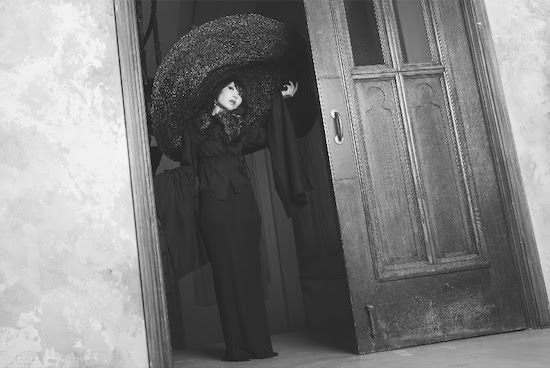Photo credit: Yoshihiro Mori
Over the course of thirty years and innumerable albums, EPs and collaborations, Tokyo trio Boris have rarely failed to confuse or confound. Their latest release, W, is no exception, and serves as another baffling piece in a puzzle whose whole perhaps needs to be viewed from space to make full sense.
The raw components to be found here – noise, new age ambience, dreamily deconstructed pop – might not be the first influences that spring to mind for many casual listeners when Boris are mentioned. They did, after all, come to prominence as part of the millennial wave of heavy, shaggy-headed rock music that involved Queens Of The Stone Age’s journey to megastardom on the one hand and the birth of Sunn O))) on the other: an odd few years where high art and low culture began to intermingle like the fluids so dexterously spurted by the two robots adorning the cover of Black Sabbath’s Technical Ecstasy.
But while the interlinked stoner, doom, drone, and sludge scenes may have been among the earliest to welcome and champion them, this was never quite the full story for Boris. Like a blind-eyed cuckoo chick instinctively tipping rival eggs out of its adoptive nest, Boris would soon grow into something altogether stranger. Amid all the amplifier (and Melvins) worship we witnessed collaborations with Keiji Haino and Merzbow, bouts of improv and a cheeky nod to Nick Drake – hints that the band were unlikely to ever stay in one particular box.
This was a promise they’d deliver on in spades as the years wore on, from wilful explorations of tacky kitsch and soaring J-pop through to a collaboration with The Cult’s Ian Astbury and, more recently, a festive Wham! cover. As their career wore on, the band didn’t so much defy expectations as provide the sonic approximation of what the house clearance guys might find upon Mr Benn’s passing: a bewildering array of strange and occasionally ill-fitting garments – many of them worn just the once – that might not make for stylistic consistency but somehow speak to a unified worldview.
By now the bleary, lulling influences with which the band seek to soothe our pandemic-shattered spirits are actually almost familiar, having dappled releases as recent as LΦVE & EVΦL. Even their role as a stylistically-opposed counterpart to 2020’s hardcore punk rager NO (which was authentic to the point of bringing Outo’s Katsumi Sugahara on board for a guest spot) makes sense in a thoroughly nonsensical sort of way. W opens with the same wispy melody that closed NO but blurs it even more, the band teasing the frayed edges to the point where the previous pattern becomes unrecognisable. Drums stumble, guitar lines fragment, and a subtle whoosh leads you to believe that strange crystal pillars might just force their way up into the sky. Except, ultimately, nothing of the sort happens, just a gradual disintegration before we drift into the somnambulant calm of ‘Icelina’, a song that sees guitarist Wata’s breathy intonations complemented by the soft burble of a dying GameBoy that is finally making peace with its maker.
‘Drowning By Numbers’ and ‘Invitation’ continue this gentle, sleepy ebb with swooshes of pastel-edged noise, abandoned post-punk bass bobs, and gentle plinks and blips that blink in and out at the edges of perception. Elsewhere ‘Beyond Good And Evil’ brings to mind Bedhead shuffling into early 00s Mogwai and Blonde Redhead, while ‘You Will Know’s slow dissolve carries with it a strange sense of familiarity – the sort of thing W.G. Sebald might have concocted had he felt compelled to form a shoegaze act with William Basinski. Where they appear, Wata’s soft, hushed murmurs serve a strange, dual role: something near-tangible amid the slow, inchoate swirl, but also the kind of fixed point that can be focused on as you wait for anaesthetic to take hold.
It’s not all gentle immersion tank introspection and whalesong, however. ‘The Fallen’ raises craggy riffs up like menhirs upon a sacred hill, while ‘Old Projector’ progresses from minimalist traipse into a photo of a photo of a Pentastar-era Earth riff. While these brief glowers are perhaps unveiled to remind us how calm and collected things otherwise are, they also play to the overriding feel of the album. Despite their vastness each groaning riff seems somehow smudged, and comes cocooned in fizzling layers of FX, so that rather than overpowering with hammerblow brutality they do so with a dense, swaddling sense of warmth.
For all its Motörhead-gone-Death-Side savagery, the band saw NO as an exercise in “extreme healing” for a virus-blighted world. Stylistic contrast aside, W is part of this same process. If NO was the crude, painful, tearing off of the Band-Aid, then W allows the wound to breathe, dry and heal, offering a gauzy (as opposed to Gauze-y), analgesic backdrop by which to collect oneself and recover. The sleepy, meditative palette provides the perfect soundtrack for reflection and rumination, and it seems that even the elements that echo the band’s previous forays into softer, plusher ether tones might have been strategically deployed so as to cozen and reassure.
While it will ultimately take more than a Boris album – or any piece of music, for that matter – to heal our mental, physical and psychic health at this point, W does provide a temporary salve: an intricately-wrought, nest-like space that manages to intrigue and fascinate despite the familiar elements that have been used in its construction. Perhaps, though, the most comforting aspect about the experience is what it reminds us about Boris themselves: that the only surefire things we can expect from them are the unexpected, the uncharacteristic and the wholly, beautifully unlikely.


